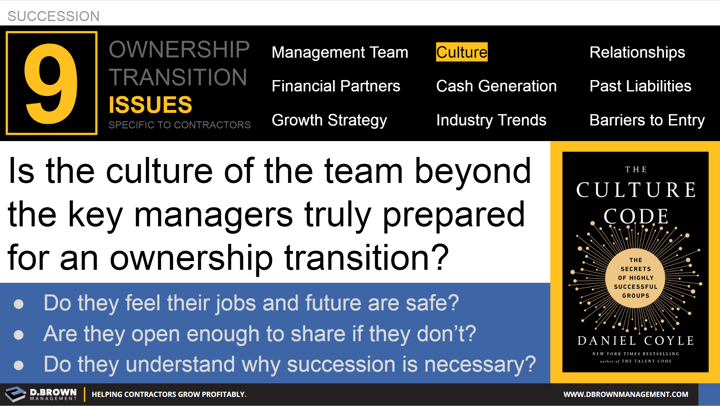This is closely related to the strength and alignment of the management team but extends out to the whole team.
“Why does it matter to the employees what happens with succession?”
While this is easy and even logical to think (or say), the reality is very different. If the overall culture of the company is not truly prepared for ownership and leadership transitions, then it can cause a drop in morale and, in turn, lead to lower productivity and likely higher turnover.
After diving deeply into the level of trust between key stakeholder groups, the next thing to assess is the broader culture. As Daniel Coyle points out in The Culture Code, there are three main areas to dive into for a high-performing culture.
- BUILD SAFETY: Do the employees feel secure that their jobs and future career opportunities won’t be negatively impacted by the change?
- SHARE VULNERABILITY: If they weren’t, would they be comfortable talking about their concerns? Or would they just leave silently? Or worse - stay and poison the culture further?
- ESTABLISH PURPOSE: Do they understand why both ownership and leadership succession are necessary parts of a vibrant business? It is the equivalent of the nature’s cycle of life for a business.
Construction is a people business. How much value would be destroyed if 20% of your top PMs, estimators, field supervisors, and crafts people turned over during the succession process?

